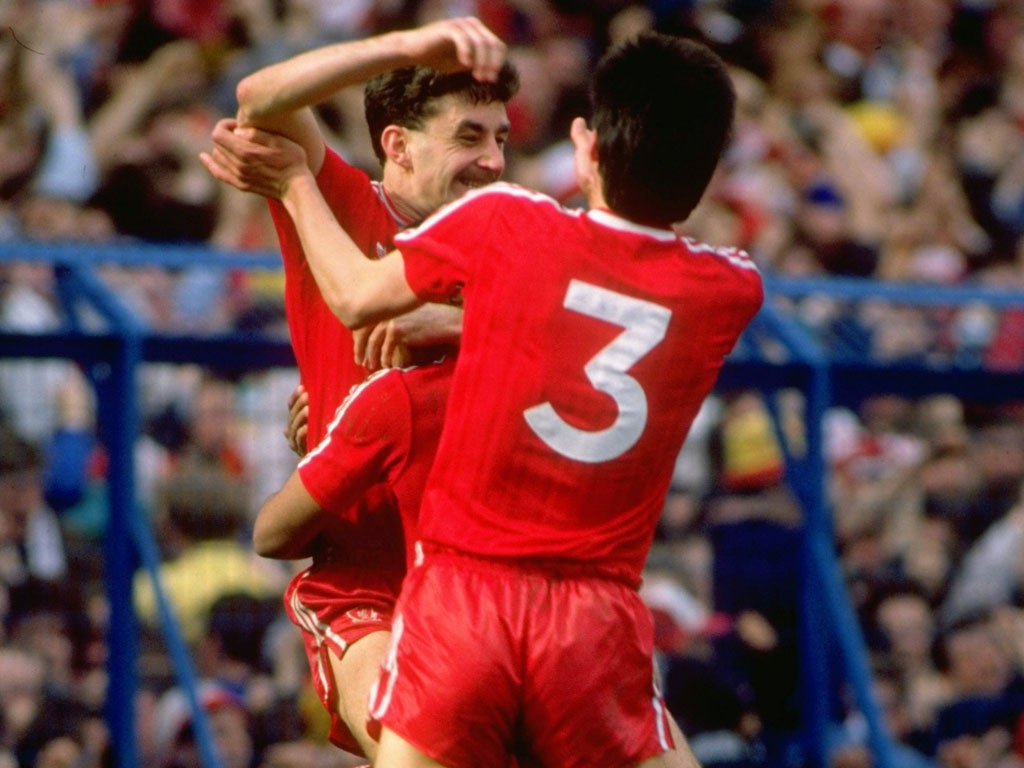FA ignored warning of crushing at 1988 semi-final
Fan's letter said it was 'impossible to breathe' during Liverpool game at Hillsborough the previous year... but concern fell on deaf ears

Your support helps us to tell the story
From reproductive rights to climate change to Big Tech, The Independent is on the ground when the story is developing. Whether it's investigating the financials of Elon Musk's pro-Trump PAC or producing our latest documentary, 'The A Word', which shines a light on the American women fighting for reproductive rights, we know how important it is to parse out the facts from the messaging.
At such a critical moment in US history, we need reporters on the ground. Your donation allows us to keep sending journalists to speak to both sides of the story.
The Independent is trusted by Americans across the entire political spectrum. And unlike many other quality news outlets, we choose not to lock Americans out of our reporting and analysis with paywalls. We believe quality journalism should be available to everyone, paid for by those who can afford it.
Your support makes all the difference.The Football Association decided that there was no risk attached to Hillsborough stadium hosting the 1989 FA Cup tie in which 96 Liverpool fans died, despite a direct letter to the organisation detailing how fans had been crushed at the same ground, which had no safety certificate, in the previous year's semi-final.
Documents made public by the Hillsborough Independent Panel show that Ken Evans, the safety consultant employed by the governing body to monitor the 1988 semi-final, also between Liverpool and Nottingham Forest, declared that "the tie went well" and made no report of the crushing subsequently reported to the FA. The then FA chief executive, Graham Kelly, decided on the basis of the report that "the identical 1989 tie was not regarded as a problem match". But the lack of a safety certificate at a stadium which was notorious among football fans and where there had been overcrowding problems in 1981, 1987 and 1988 led the Labour MP Andy Burnham – who was instrumental in setting up the panel – to accuse the FA yesterday of "basic negligence" and a lack of concern for public safety.
Contacted by The Independent yesterday, Kelly said he did not wish to comment on the panel's findings, his role at the FA, or the decision to select Hillsborough as an FA Cup semi-final venue in 1989. He said: "I'm glad that it has been resolved in some way."
The panel has discovered evidence of what Liverpool fans who attended the 1988 semi-final have always insisted: that the 1988 match revealed the inadequacy of the stadium for such an event. Correspondence published by the panel includes a direct plea to the FA from one fan, who detailed his experiences immediately after the tie, which Liverpool won 2-1. "The whole area was packed solid to the point where it was impossible to move and where I, and others around me, felt considerable concern for personal safety," the supporter wrote. "As a result of the crush an umbrella I was holding in my hand was snapped in half against the crush barrier in front of me… My concern over safety was such – at times it was impossible to breathe – that at half-time… I managed to extricate myself from the terrace, having taken the view that my personal safety was more important than watching the second half."
The letter was sent to the then Minister of Sport, Colin Moynihan, and to the FA. It was incorrectly addressed to the Ministry so did not arrive. The FA did not reply and when asked about the letter after Hillsborough could not locate it.
Hillsborough was not used as a semi-final venue from 1982 until 1987 because of a serious crush during the 1981 semi-final there, between Tottenham Hotspur and Wolverhampton Wanderers which, as in 1989, resulted in the opening of Exit Gate C to relieve the crush. The panel documents reveal that the near disaster in 1981 prompted a major breakdown in relations between South Yorkshire Police and Sheffield Wednesday, with neither accepting responsibility. The panel found that Wednesday's "primary concern was to limit costs" amid pressure for ground improvements. One of the 400,000 documents seen by the panel shows that after the abandonment of the 1989 semi-final the club pursued Kelly, seeking compensation for lost revenues. Kelly then asked his staff "whether he should consider the [Wednesday] letter or whether we had any problems with the FA making any donations", according to one note.
Correspondence between the FA and its lawyers, Freshfields, after the tragedy reveals the association's unwillingness to become involved in overseeing ground improvements. A note of a conversation between the two describes the FA questioning whether it should have set up an inspectorate. The discussion also centred on how, in the lawyers' words, rules had been "tinkered with… to incorporate get-out clauses for people complying with safety requirements". The lawyers' advice was that an inspectorate would "necessitate setting up a whole new department at the FA to properly supervise the implementation of the corrective measures".
The panel's full report describes how Kelly, a key link between the authorities and journalists on the afternoon of the disaster, had presented on national radio the police version of events that Liverpool fans had forced Exit Gate C. BBC match commentator Alan Green provided the qualification in his own broadcast that these reports were "unconfirmed". In further documents published by the panel, Kelly states that he had made it clear there were "two versions of events" when he later spoke to the news and Match of the Day. The BBC script delivered by newsreader Moira Stuart that night stated the police version as fact. The FA chairman, David Bernstein, apologised on behalf of the association yesterday.
Join our commenting forum
Join thought-provoking conversations, follow other Independent readers and see their replies
Comments